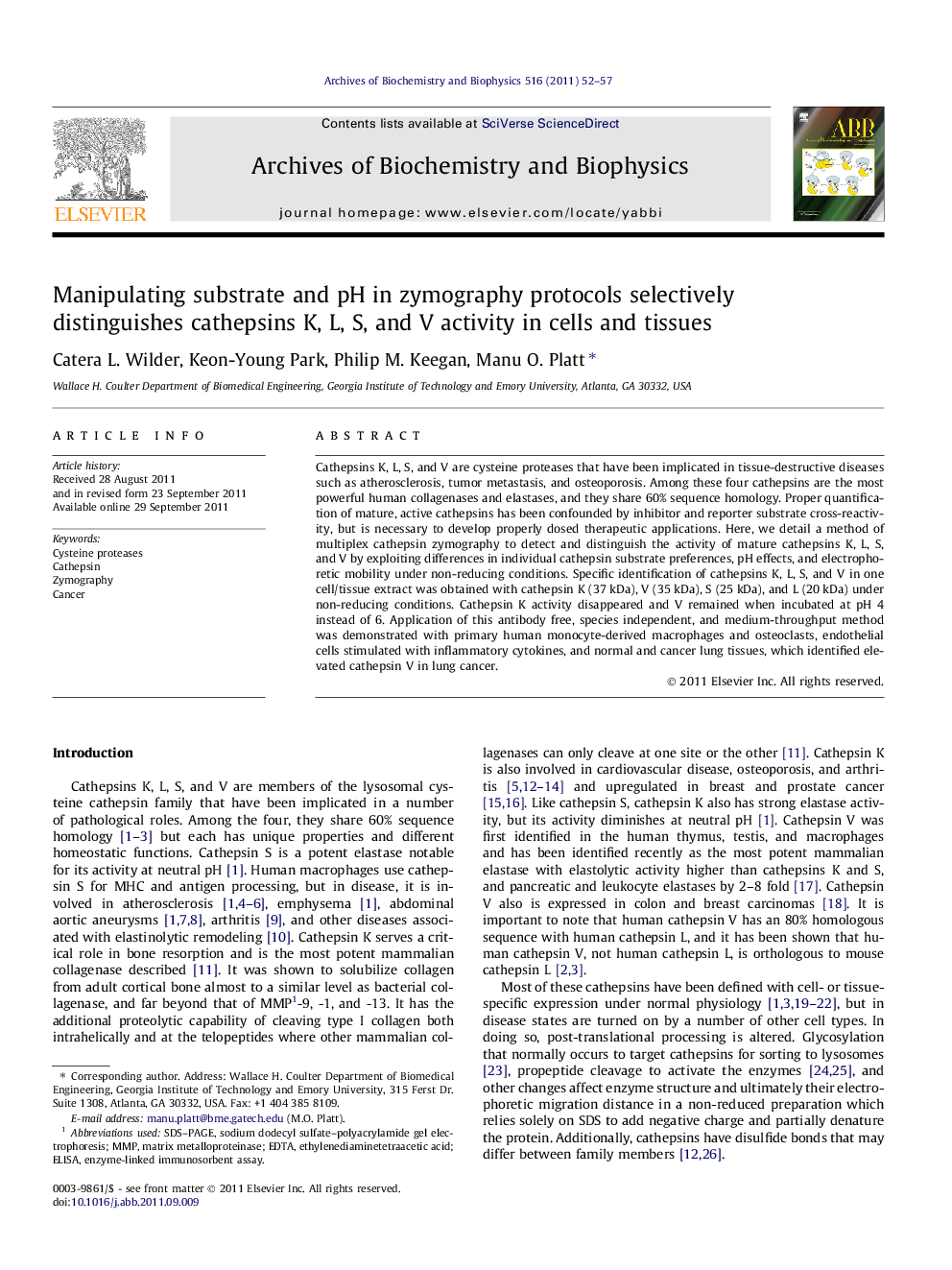| کد مقاله | کد نشریه | سال انتشار | مقاله انگلیسی | نسخه تمام متن |
|---|---|---|---|---|
| 1925645 | 1536403 | 2011 | 6 صفحه PDF | دانلود رایگان |

Cathepsins K, L, S, and V are cysteine proteases that have been implicated in tissue-destructive diseases such as atherosclerosis, tumor metastasis, and osteoporosis. Among these four cathepsins are the most powerful human collagenases and elastases, and they share 60% sequence homology. Proper quantification of mature, active cathepsins has been confounded by inhibitor and reporter substrate cross-reactivity, but is necessary to develop properly dosed therapeutic applications. Here, we detail a method of multiplex cathepsin zymography to detect and distinguish the activity of mature cathepsins K, L, S, and V by exploiting differences in individual cathepsin substrate preferences, pH effects, and electrophoretic mobility under non-reducing conditions. Specific identification of cathepsins K, L, S, and V in one cell/tissue extract was obtained with cathepsin K (37 kDa), V (35 kDa), S (25 kDa), and L (20 kDa) under non-reducing conditions. Cathepsin K activity disappeared and V remained when incubated at pH 4 instead of 6. Application of this antibody free, species independent, and medium-throughput method was demonstrated with primary human monocyte-derived macrophages and osteoclasts, endothelial cells stimulated with inflammatory cytokines, and normal and cancer lung tissues, which identified elevated cathepsin V in lung cancer.
Figure optionsDownload high-quality image (84 K)Download as PowerPoint slideHighlights
► Multiplex cathepsin zymography detects cathepsins K, L, S, and V in a cell or tissue extract.
► Incubation of zymography at pH 4, selectively identifies cathepsins V and L.
► Cathepsin V was detected in human lung cancer but not in normal lung tissue.
Journal: Archives of Biochemistry and Biophysics - Volume 516, Issue 1, 1 December 2011, Pages 52–57